I remember seeing the PS3 Kara tech demo back in 2012 and being utterly mesmerised by not just the graphics but at the lifelike performance of the android as she’s being assembled. At the time I never imagined it would take the shape of a new game on PS4, but what is most surprising, however, is that the Kara tech demo which would eventually become Detroit as we know it now, would be Quantic Dream’s best game to date.
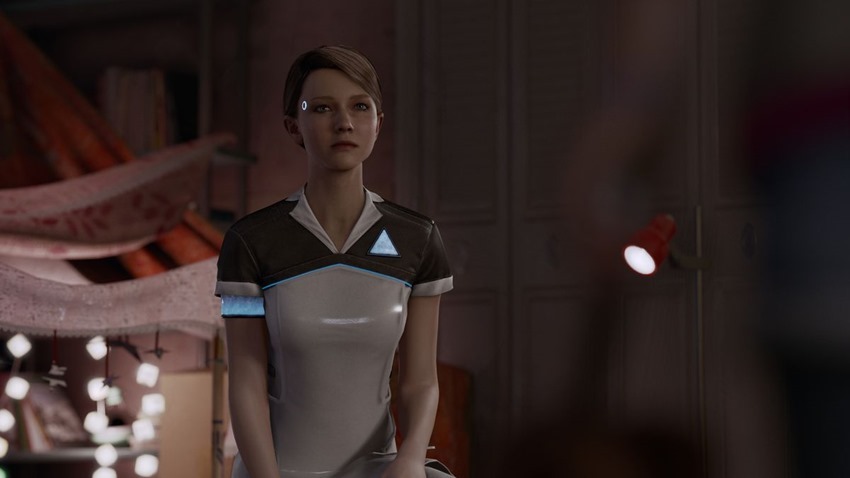
The game takes place in Detroit in the not too distant future depicting a landscape thriving with technological advancements. At the height of this era came the invention of human-like androids, soulless machines created with the sole purpose to help humankind.
However, tensions soon began to rise between man and machine. Some viewed them as unholy creations while others were angry at the fact that androids started taking over their jobs. While androids were still generally accepted by the populace, discriminatory behaviour towards them was on the rise. Androids feel nothing, however, so aggression towards them was somewhat meaningless, but all that changed as slowly, but surely they started gaining sentience and became what are known as Deviants. The story begins at the start of this turning point.
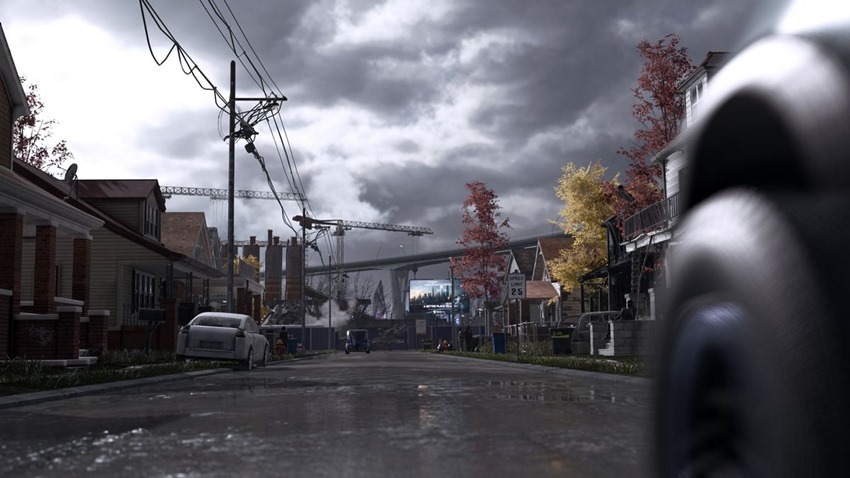
When it comes to Quantic Dream, I can’t say I’ve ever truly been a fan of their work. I appreciate what they’re trying to do for narratives in gaming, but their games, while ambitious never truly hit the mark for me. Indigo Prophecy started off really interesting but devolved into this weird supernatural story filled with aliens or Mayans and B-grade Matrix-like fighting sequences. Heavy Rain, while a good game, had its share of plot holes and was misleading to its own detriment, all in favour of playing up the main twist of the story. Beyond Two Souls on the other hand is nothing but a jumbled mess of ideas that not even Ellen Page and Willem Dafoe could save. Each of these games tried really hard to get you to care about the characters as well, but when they’re only used as tools to drive an often convoluted story forward, they end up being mishandled and ultimately forgotten. Detroit goes in the complete opposite direction and instead puts the focus solely on the characters and their journey within a really simple narrative – and I cannot express enough how much of a better game it is because of that.
“This is our story”. The tagline used by the three main android protagonists, Kara, Connor and Markus, in numerous promotional trailers. It came across as a bit cheesy when I first heard them saying it, but after playing the game, it made sense. At its core, Detroit is about existentialism, what it means to be human, and ultimately, what it means to be alive. The answers to these concepts are not found in the overall narrative, but rather within each of the, protagonist’s individual story. By giving you three distinct and focused perspectives, these answers become much more nuanced and multifaceted. This is precisely the kind of approach this game needed, seeing as though it’s attempting to ask such philosophical questions. This doesn’t mean that Detroit is trying to be the next Nietzsche, far from it, but due to the strong characterisation and writing of the protagonists and their stories, the experience can be as deep or straightforward as you want.
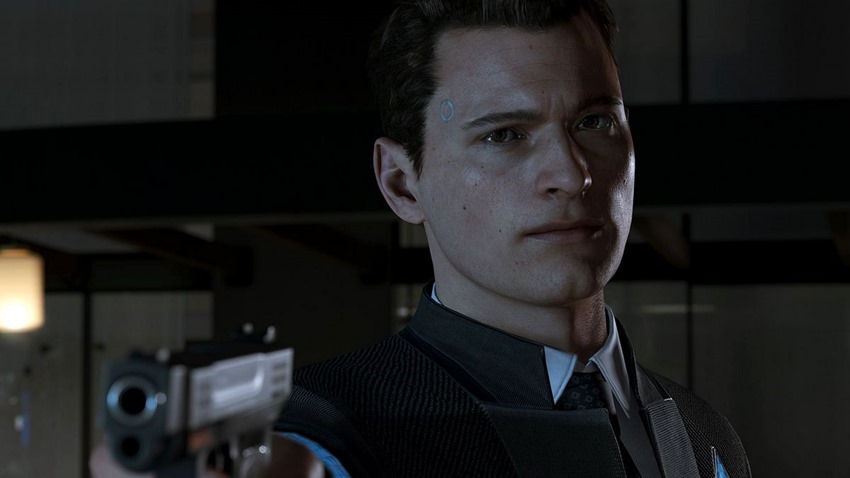
Each of the main character’s motivations and goals differ from one another. Kara saves a little girl named Alice from an abusive father and the two of them set out to find a place where they can be safe and happy together. Connor is partnered up with a washed-up detective to solve the case of why androids are becoming Deviants while Markus becomes the leader of a revolutionary group, fighting for the freedom of all androids. You’ll automatically switch between them as you progress through the story and there’s a definite tonal shift each time this happens, but this helps in keeping the experience fresh and exciting.
As an android designed to assist the police during investigations, Connor’s path mostly consists of visiting crime scenes, collecting evidence and solving cases. These sections were really quite fun as you go about scanning the environment for clues, virtually reconstructing how the crimes were committed and generally trying to piece together what happened. These investigation sections all play out differently to one another and never felt tiresome. One case had you finding a Deviant among a group of androids based on visual cues alone, while another had you gathering information and evidence to use during an intense interrogation segment. Thematically, Connor represents the androids at their base form, cold, calculated and always following orders. This changes however as he gets to know his partner, Hank, and he struggles to come to grips with his own developing free will. The buddy cop shtick going on between Connor and Hank as well is heartfelt too.
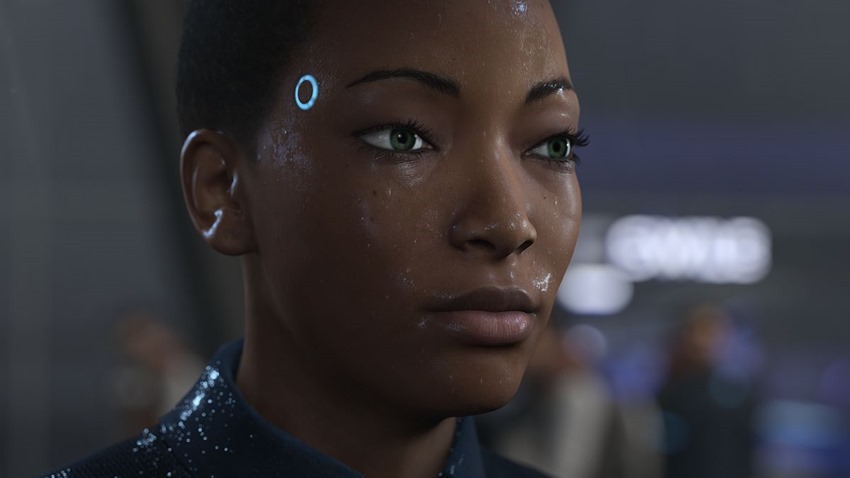
Kara’s path is probably the one that’s going to stick with me the most due to the shocking nature of the opening parts of her story. As shown in the 2017 Paris Games Week trailer, there is a really heavy depiction of domestic abuse demonstrated in which Alice is involved. The trailer alone couldn’t prepare me for one of the most harrowing gaming experiences I’ve ever had. I won’t say too much about it as it’s something you’re going to have to make your mind up about yourself, but at the very least I don’t feel it was handled distastefully.
Everything leading up to that point helps in painting a picture of what’s happening in that household. When things eventually erupt it really sets the tone for their long and arduous journey together, while at the same time filling you with determination to keep them safe. Their bond grows through hardship and I couldn’t help but feel emotional every time Alice looked to Kara for reassurance.
Finally, we have Markus, the android fighting to be free. His path will eventually become the focal point of the game towards the end and It’s also here we get to see a lot of the discrimination against androids and how he and others like him react to it. Much like the domestic abuse scene, there’ll be parts in Markus’ story that will be a point of discussion.
Personally, it’s a bit of a mixed bag. There are some nice touches such as the media labelling Markus and his organisation as terrorists, even though they’re not harming anyone, clearly showing in a subtle yet impactful way the bias against androids. Then there are times where they show the androids being segregated on buses, and it feels entirely out of place and more like a beating over the head that hey, androids are being treated differently. While these parts do lack finesse, however, it never bothered me enough to feel anything negative towards his storyline. Markus views being alive as being free and it was great to see and shape his path to freedom.
Each character path is not a straight line however, and your choices will affect how the game plays out. While this is nothing new to Quantic Dream games, the branching story in Detroit is quite impressive. There are so many ways in which events can unfold and based on your decisions you might even end up killing a character. Character death doesn’t also mean the game ends, so the stakes are high if you’re hoping to keep everyone alive to the end. Character interactions are also important and having a good relationship with someone might even open up more paths further down the line. There are times when it’s not clear what the ‘right’ answer is, but for the most part, you’re able to make educated decisions on how to proceed. I’d be lying if I said some of these choices didn’t give me anxiety, but its part of the fun of knowing you’re impacting the story in a meaningful way. There is the Flowchart too, which allows you to view the different branches per story segment, making it easier to jump back to a particular part and see how it would play out differently, but I only recommend doing that after finishing the game.
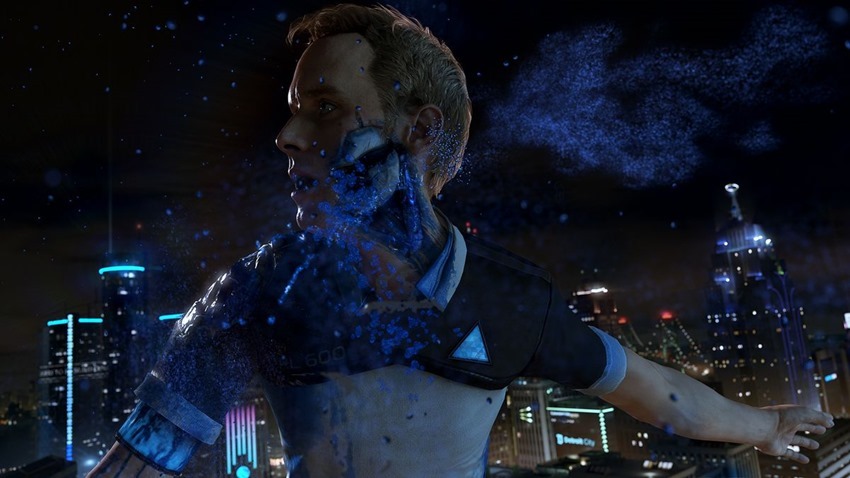
If you’ve played any Quantic Dream game before, you’ll know exactly how the game controls; terribly. Walking is still as awkward as ever and navigation can sometimes be a pain, but due to this being an adventure game, it’s much more of a minor annoyance than something game-breaking. Aside from controls, the gameplay itself is still largely QTE based, with some DS4 motion controller movements as well. My controller nearly flew up into my face as it slipped out of my hand while vigorously shaking it up and down. I could’ve done without this but thankfully there aren’t too many of those.
Calling Detroit a gorgeous looking game is an understatement. The level of detail that went into the character models and environments is astounding. This is one of the best looking games on the system. The high production values goes beyond the visuals too as the voice acting and performances are incredible, rivalling something you would see in a movie or TV series. Some of the animations do look a bit off, however, but it never really detracts from the overall presentation. The soundtrack is sublime, with each character’s theme done by a different composer. Kara’s, in particular, is haunting with a soft and sombre melody, befitting what Kara and Alice have to go through.
Detroit: Become Human is by far Quantic Dream and David Cage’s best game because it’s not like any other game by David Cage. There are no convoluted supernatural elements or plot twists to keep players engaged to the end. Instead, the game focuses on simple storytelling with a cast of endearing characters. For the first time, I’m excited for what’s next by the studio.
Last Updated: May 24, 2018
| Detroit: Become Human | |
|
Detroit: Become Human manages to dial back Quantic Dream’s usual style of storytelling and instead focus more on the characters and their personal journey resulting in one the most compelling adventure games in recent memory.
|
|
|---|---|
| Detroit: Become Human was reviewed on PlayStation 4 | |
|
78 /
100
| |






















